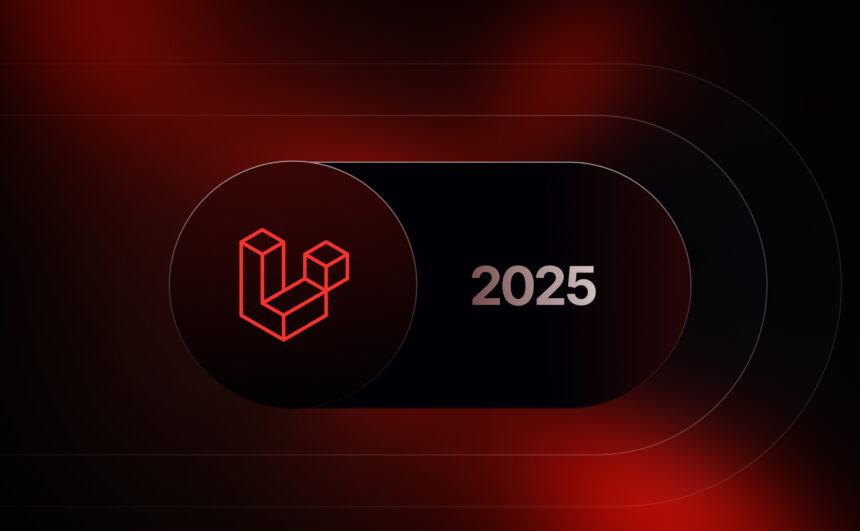For years, the tech industry moved under a single mantra: ship fast, fix later. Speed was king. But in 2025, the rules of the game have changed. Shipping quickly is no longer enough. To win the trust of users, regulators, and enterprise clients, teams must deliver compliant, transparent, and high-quality software.
This is where agencies like Laravel development agency – Kavita Systems play an essential role. Known for combining business goals with technical excellence and compliance-first engineering, Kavita Systems helps organizations adapt their development workflows to meet the demands of today’s regulatory and QA landscape. On the Official site of Kavita Systems you’ll find frameworks, solutions, and insights that show how regulatory readiness and product innovation can grow together.
Laravel isn’t just a PHP framework anymore—it has evolved into a strategic choice for organizations that need to scale securely, stay audit-ready, and build products that survive regulatory scrutiny.
The Regulatory Earthquake: GDPR, CCPA, and the EU AI Act
The compliance burden facing development teams is heavier than ever.
- GDPR enforcement continues to rise. In 2024, regulators issued record fines across the EU, with several exceeding €1 billion in total value. Even smaller cases frequently reach millions, and watchdogs report year-on-year growth in enforcement actions.
- CCPA/CPRA fines in California remain a constant threat: up to $2,500 for unintentional violations and up to $7,500 for intentional ones.
- EU AI Act, the world’s first comprehensive AI law, entered into force in August 2024. Its penalties reach €35 million or 7% of global turnover for the gravest violations. The law classifies AI into four risk categories: prohibited, high-risk, limited risk, and minimal risk.
High-risk systems, such as biometric identification in the workplace or AI tools used in recruitment, now demand robust oversight, documentation, and transparency. Even limited-risk systems, like chatbots, must disclose that users are interacting with AI.
For developers, this means a new reality: every feature is not just a technical challenge but also a legal and ethical one.
Compliance as the New Technical Debt
We used to speak of technical debt as shortcuts in architecture that slowed teams down. Today, compliance debt is even more dangerous.
Every unanswered question—
- How do we handle “right to be forgotten” requests?
- What bias testing applies to our AI model?
- Where exactly do personal data flow?
—turns into liabilities that compound over time.
Laravel provides a strong answer here. Its middleware system, validation layers, and authentication scaffolding allow developers to implement consent checks, data handling policies, and audit logging directly into the application lifecycle. At Kavita Systems – Laravel development agency, compliance-by-design is not an afterthought but a starting point.
How Regulations Break Old Workflows
Workflow Disruption
What once took two weeks now takes six. Teams must run features past legal, privacy, and compliance officers, then external auditors. Developers spend half their time writing documentation instead of writing code.
Laravel advantage: Using API Resources and structured request validation, teams can document data flows automatically. That documentation doubles as compliance evidence.
Release Delays
Features stall in approval chains: internal compliance → legal → privacy → risk → auditors. Each step adds new requirements, from data retention adjustments to explainability features.
Laravel advantage: Tools like Laravel Horizon provide transparent monitoring, while packages such as laravel-auditing generate tamper-proof logs that auditors can review without halting release cycles.
Rising Costs
Consent management platforms, explainability systems, and audit infrastructures add recurring expenses. External legal reviews only deepen the bill.
Laravel advantage: With built-in features and open-source packages for role-based access control, logging, and GDPR compliance, Laravel reduces reliance on costly third-party platforms.
Developer Burnout
Instead of solving problems, engineers sit in meetings explaining architectures to non-technical stakeholders. Many feel they’ve become part-time lawyers.
Laravel advantage: Automating workflows with job queues and scheduled tasks allows teams to process deletion requests, data exports, or consent updates without manual overhead. This frees developers to focus on innovation.
The QA Revolution
Parallel to regulation, Quality Assurance has also shifted. QA is no longer the final checkpoint; it is the backbone of software delivery.
- Shift-Left Testing brings QA into sprint planning.
- Test-Driven Development (TDD) ensures code is written for testability.
- Behavior-Driven Development (BDD) creates living documentation with Gherkin syntax.
- Automation ties regression, integration, and end-to-end tests into CI/CD pipelines.
With Pest and PHPUnit baked into the ecosystem, Laravel projects naturally support TDD/BDD. Kavita Systems builds CI/CD pipelines where every pull request runs automated compliance and QA checks.
The Double Burden—Or Double Advantage
At first glance, compliance and QA look like heavy anchors dragging agile development down. But the smartest companies use them as scaffolding.
When teams integrate compliance and QA from the start, they gain:
- faster approvals,
- lower long-term risk,
- stronger trust from users and regulators,
- and a competitive edge in enterprise sales.
For sectors like healthcare, finance, or government, this is not optional—it’s the price of entry.
Compliance + QA as Architecture
Here’s how leading companies build compliance and QA into the heart of their architecture:
- Embed Legal Early – Compliance officers attend sprint planning. Developers learn to translate legal requirements into user stories.
- Privacy by Design – Reusable modules handle consent, logging, and data deletion.
- Laravel example: Middleware checks consent globally. Audit trails are stored via laravel-auditing.
- Automate Compliance – Policy-as-code tools enforce standards across environments.
- Laravel example: Policies and Gates control access by role and purpose.
- Train Developers – Compliance is added to the career ladder; engineers who master it advance faster.
- Plan Budgets Realistically – Compliance is not a one-time line item. It requires continuous investment.
Turning Compliance Into a Competitive Edge
Compliance is often framed as a cost. In reality, it is a growth enabler.
- Enterprise contracts now demand provable compliance.
- Investors value transparent governance.
- Users reward companies that protect their rights.
- Developers prefer to work on meaningful, ethical products.
Laravel example: Features like Passport for secure API authentication and Eloquent ORM for structured, auditable data flows make Laravel especially attractive for compliance-first projects.
As Jelvix CEO Oleksandr Andrieiev notes:
“We frame compliance as a value-add for clients: it accelerates approvals, builds investor confidence, and reduces long-term legal risk. By positioning it as a competitive differentiator, clients see it less as a cost and more as a growth enabler.”
Conclusion: Laravel, QA, and Compliance as the New Foundations
2025 marks a turning point. The days of shipping fast and hoping for the best are gone. GDPR, CCPA, and the EU AI Act have redefined what it means to deliver software. QA is no longer a side role; it is the backbone of product delivery.
The winners of this era will be the organizations that:
- bake compliance into their design,
- embed QA from day one,
- automate processes relentlessly,
- and choose frameworks like Laravel that make compliance natural.
Speed alone no longer defines success. Trust, transparency, and compliance-first quality do.
With partners like Kavita Systems – Laravel agency, companies can go beyond surviving regulation—they can turn it into a moat competitors cannot cross. On the Official site, you’ll find how compliance and Laravel can become the foundation of sustainable digital growth.


